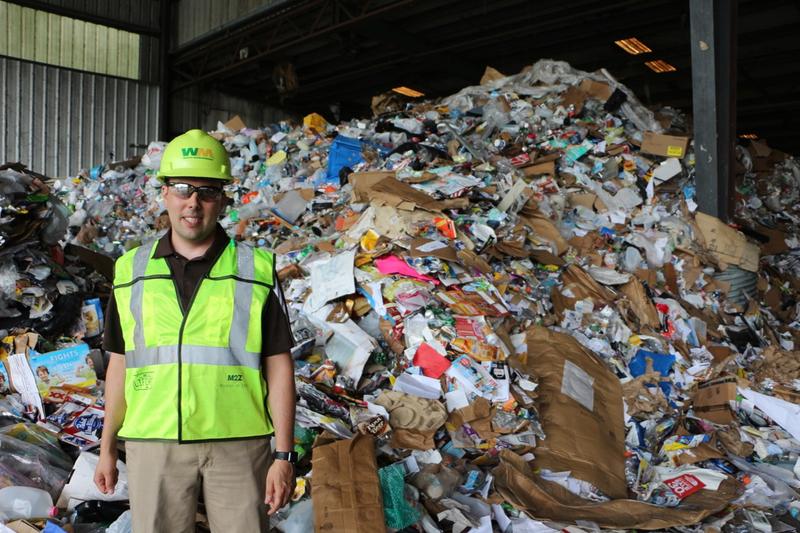
Metro Nashville will likely start paying more to run its recycling program. The city is in the middle of renegotiating its contract with Waste Management, the company that handles the recycling process after materials are collected.
But the Public Works department says Nashville is committed to continuing its recycling program — and indeed is increasing pickup to twice a month — at a time when other cities are starting to abandon their efforts.
More:
After Years Of Hoping, Nashville Will Increase Curbside Recycling
The catalyst for this change is China, which used to be one of the largest importers of America’s recycled material. But it recently started restricting what it would buy,
causing a ripple effect across the U.S.
So, even though Nashville hadn’t been sending its material overseas, it had been selling to domestic mills. Now, cities across America are competing to sell to those mills.
“We have a large, large supply of material, all of a sudden, that’s glutted on the market and just not enough demand for all the supply that’s there,” says Robert Cheney, director of business development with Waste Management, one of the largest waste disposal companies in the country.
“It also … has driven the value of those commodities into the ground. So what you’re seeing is kind of a perfect storm.”
The contamination problem
Here’s how the recycling process works in much of Nashville:
Residents put their recycled material in a curbside bin. Metro trucks collect the contents and then drop them off at Waste Management’s sorting facility, which has an elaborate process to separate out the pile into its individual materials: cardboard, paper, aluminum and hard plastics. Each material is bundled and sold to mills that recycle it into a new product.
But it’s not a perfect process, and there’s always some amount of unwanted material — or “contamination,” as it’s called in the recycling world — that gets through.
More:
Curious Nashville: The Do’s And Don’ts Of Nashville Recycling
In order to be competitive to sell, Cheney says, waste companies have to reduce contamination as much as possible.
So Waste Management and Metro Nashville are renegotiating their contract, something that usually only happens during “a major change in market values that completely impacts the structure of the contract,” says Metro Public Works director Sharon Smith.
In the end, Nashville will likely pay higher processing fees to Waste Management, which will do more to purify its bundles of materials. In return, Nashville will get a higher percentage of the sale price when Waste Management sells the materials to mills. Instead of splitting the revenue evenly, Nashville will now receive 75%, according to Cheney.
What residents can do
Smith says the city is committed to recycling and notes that it’s both more sustainable and cost-effective than sending waste to a landfill. And the price of recyclable materials will likely rise again, she says, making their new revenue split more lucrative.
But residents need to do their part too, she says.
“Our biggest problem is contamination,” Smith says. “If we had good, clean material coming into the facility, we wouldn’t be looking at potentially increased processing fees.”
The most common offenders, she says, are plastic bags and garden hoses. Both damage the sorting equipment. She notes that people should focus on recycling only the basics: paper, cardboard, aluminum and hard
plastics.


